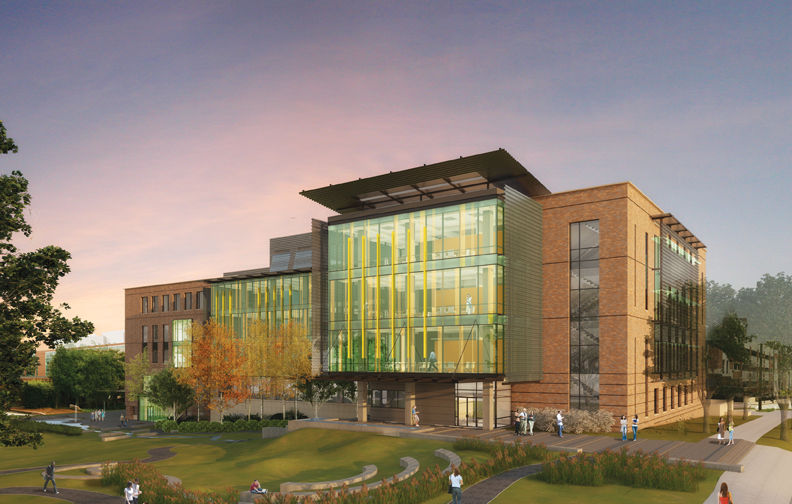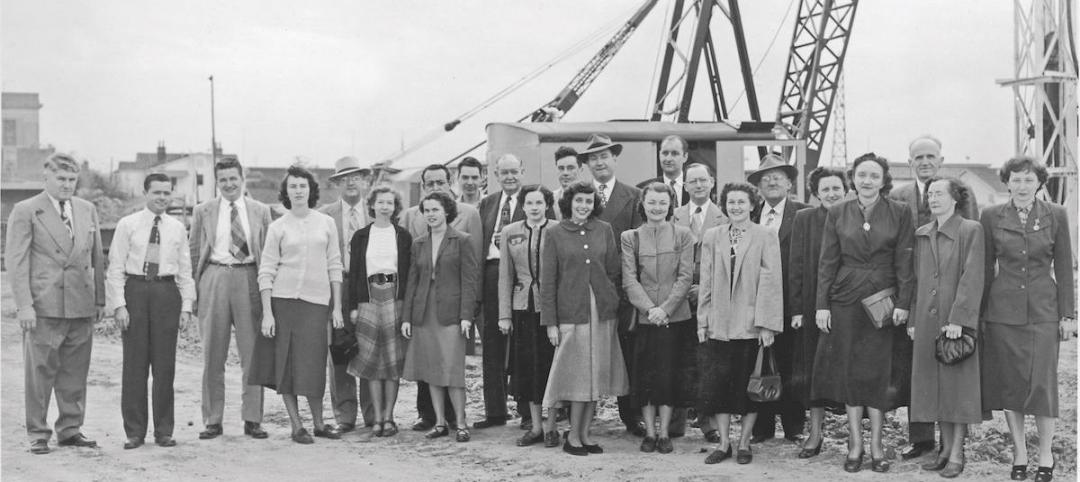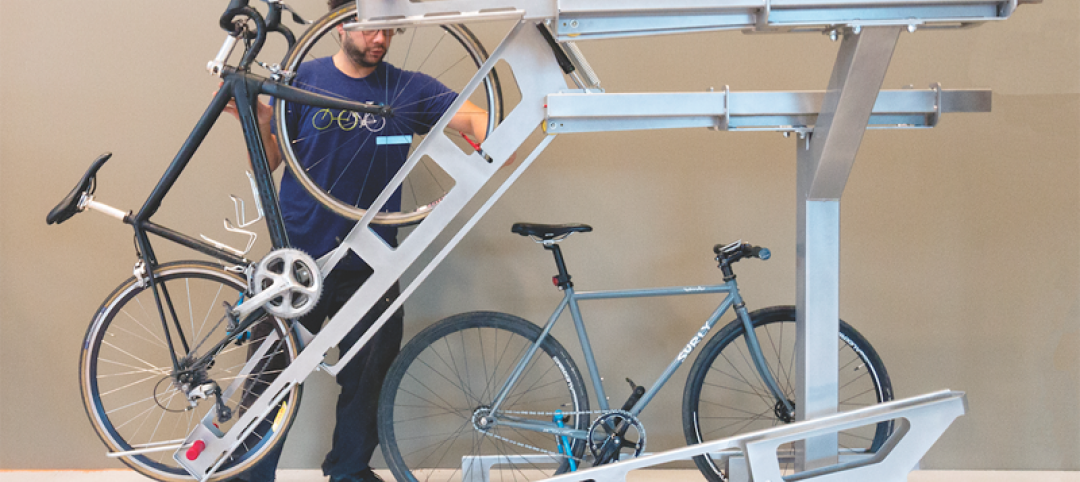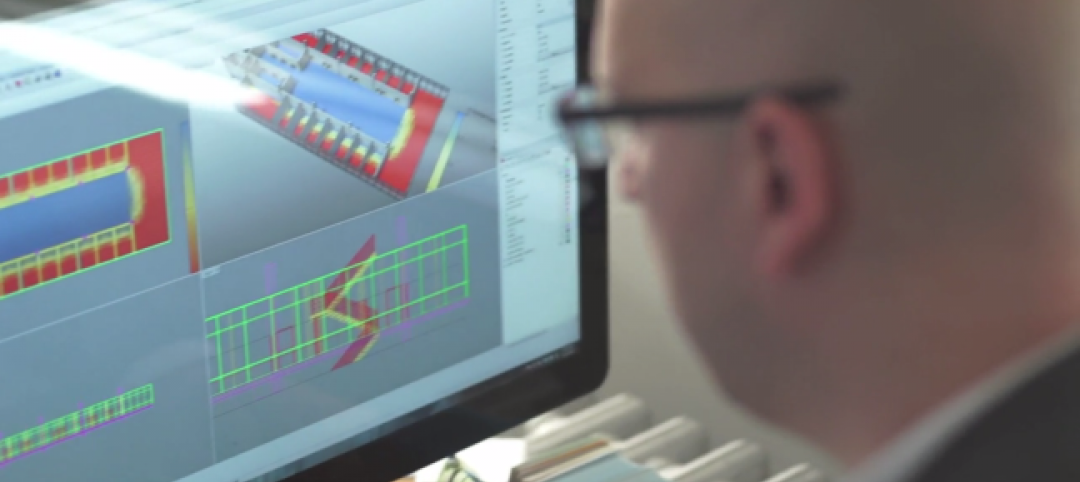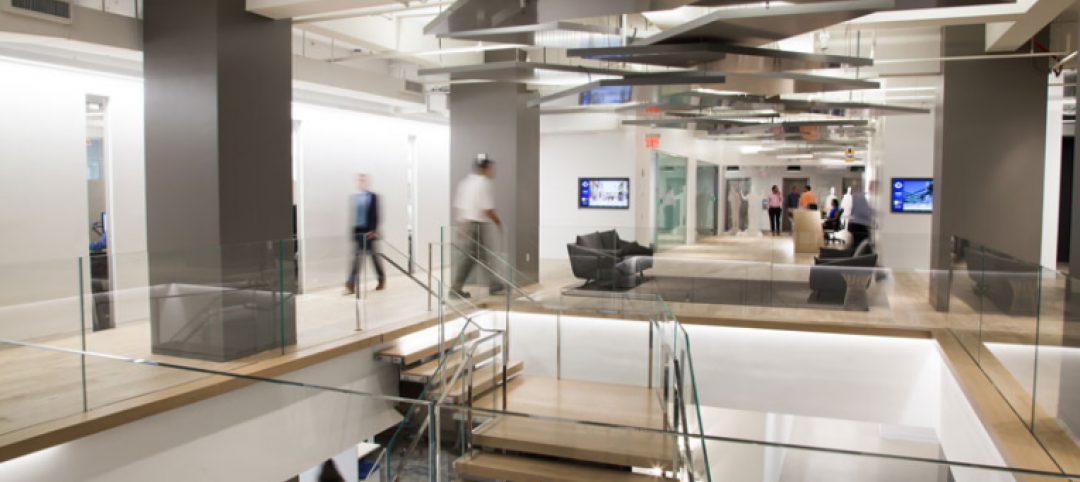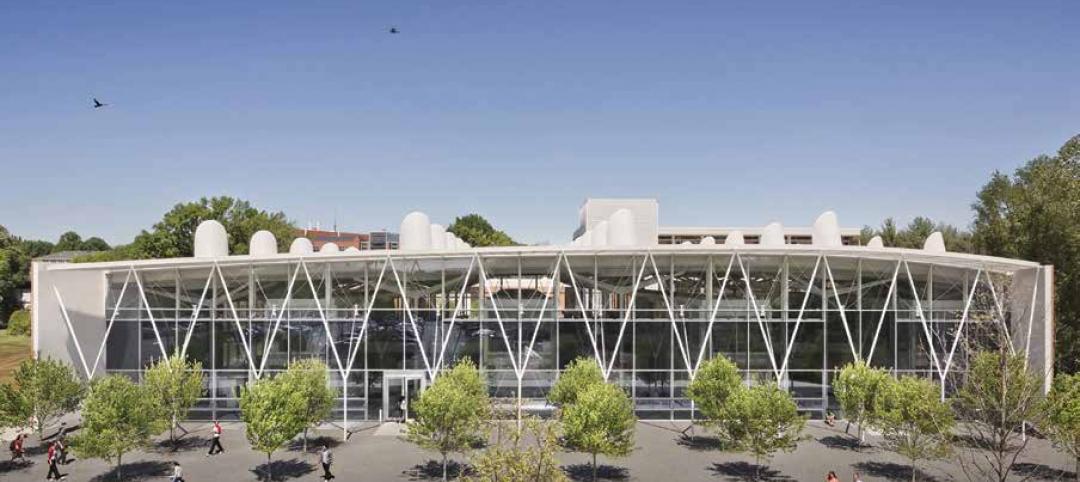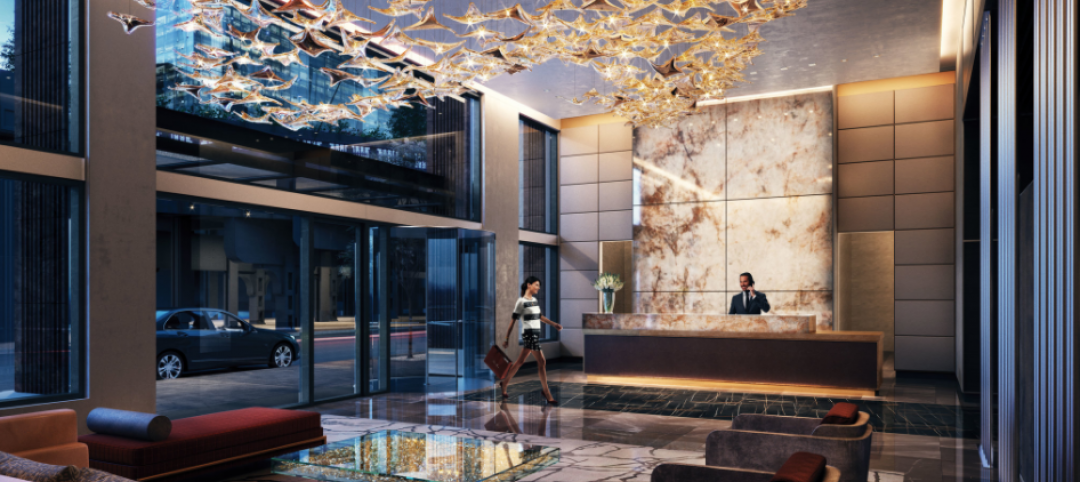Architecture firms are pursuing transparency and disclosure en route to achieving high sustainability ratings for their clients’ buildings.
“Transparency and healthy materials is one of the hottest topics in the green building industry,” says SERA Architecture’s Lisa Petterson, AIA, LC, LEED AP BD+C. “We are seeing more and more emphasis on actual rather than predicted performance.”
With partners Lucid and Enmetric, SERA is studying plug load use in its own Portland, Ore., office, to see how to save energy. A previous research project on water savings in actual projects led to regulatory changes in Oregon.
VOA Associates is developing post-occupancy surveys to collect building performance data. “This will help us understand human interaction on specific buildings and building types, to inform future projects and help us create better, healthier built environments,” says VOA Sustainability Leader Susan Heinking, AIA, NCARB, LEED AP O+M.
To get a better handle on real performance numbers, HDR Architecture has developed two metrics: the Sustainable Return on Investment (SROI), which computes a dollar-based measure of project goals in reducing energy, water, and waste; and the Sustainability-adjusted Life Cycle Cost Analysis (SLCCA), which evaluates the full cost of design decisions so that benchmarks can be developed for sustainable design decisions.
As a firm that does work all over the world, Gensler has to be attuned to many different climates; hence its use of design performance analysis software at the beginning of virtually all projects, says Kirsten Ritchie, PE, LEED AP O+M, the firm’s Sustainable Design Director. “We develop early conceptual designs and use building simulation software to measure design impacts on energy, carbon, water, and daylight,” she says. “This enables us to make design decisions that ‘tune’ our building performance.”
Firms are finding, however, that energy modeling, while usually helpful, is not an end in itself. “It narrows the universe of options really quickly and helps us make the right moves as early [in design] as possible,” says Heather Holdridge, Assoc. AIA, EIT, LEED AP BD+C, Sustainability Coordinator with Lake|Flato Architects. “It helps us to set some clear goals early in the process.”
At Cannon Design, project teams have a proprietary design tool at their fingertips—it’s called Material LIFE—that enables them to compare construction systems and materials from cradle to gate. According to Sustainability Director Rand Ekman, AIA, LEED Fellow, this process allows designers to choose materials that not only reduce global energy use but also have a positive life cycle impact.
MINING FOR PRECIOUS GOLD—AND MORE
More and more architecture firms are pushing higher and higher on the sustainability ladder.
For example, PGAL has executed numerous high-LEED projects in recent years: the net-zero-ready Bachelor Enlisted Quarters at Marine Corps Air Ground Combat Center, Twentynine Palms, Calif., awaiting Platinum certification; Gold-certified Innovation Village Apartments at Florida Atlantic University; the $42 million U.S. Federal Courthouse, Fort Pierce, Fla., awaiting Gold certification; and two transport projects seeking LEED Gold—the Consolidated Rental Car Facility at Boston’s Logan International Airport and the Regional Intermodal Transit Center at Bob Hope Airport, Burbank, Calif.
Globetrotting firm RTKL recently earned LEED Gold for the Mirdif City Centre, a 230,000-sf mall with parking for 7,000 cars, in Dubai. Another LEED project, the 135,000-sf Mall of Egypt, in Cairo, was also completed for client Majid Al Futtaim Properties. Closer to home, RTKL gained LEED Gold for the 21,000-sf White Oak Wonders, a child care center on the campus of the Food and Drug Administration headquarters in White Oak, Md.
WD Partners, a leader in green retail design, emphasizes the ongoing investment value of sustainability to clients like grocers Whole Foods, Price Chopper, and Fresh & Easy. The firm collaborated with UTC Power on the installation of a 400-kW fuel cell at a Stop & Shop in East Torrington, Conn., that provides 95% of the store’s electrical needs; the store’s total utility bills have been trimmed in half in the last two years.
WD Partners has also contracted with the U.S. Energy Department’s Pacific Northwest National Lab to develop the next-generation Home Depot retail outlet—one that will cut energy use 50%.
Design firms are also widening their green service capabilities. Atkins has launched a retro-commissioning business, based in Fort Myers, Fla., to capture some of the potential $1.8 billion that Pike Research projects will propel the retro-Cx market by 2014.
Firms are also stretching their goals. Net-zero energy is no longer the impossible dream, as the Health Professions & Student Services Building at North Shore Community College, Danvers, Mass., demonstrates
The three-story, LEED Gold building uses a 50-well geothermal system, chilled beams, and a tight building envelope to reduce energy consumption, and roof-mounted PVs to generate the power needed to make the building net-zero for energy. DiMella Shaffer Associates (designer) and Walsh Brothers (CM) headed the team.
On the green horizon: PNC Bank Headquarters, under design by Gensler and Buro Happold (SE, MEP, modeling consultant). The client for this $400 million, 800,000-sf tower, PNC’s Gary Saulson, has publicly defined his “modest” demands—to make it the “greenest high-rise building in the world,” with the lowest predicted energy use intensity. We’ll find out how well the Building Team did to meet these goals in about three years. +
Related Stories
Multifamily Housing | Oct 29, 2017
Multifamily visionaries: The Beach Company’s family ties
Spanning four generations, The Beach Company continues to expand its development footprint across the Southeast.
Multifamily Housing | Oct 9, 2017
6 new products for the multifamily construction market
Bamboo wall panels, an adaptable prep sink, and a two-tiered bike parking system are among the product innovations geared for multifamily buildings.
AEC Tech | Oct 6, 2017
How professional bias can sabotage industry transformation
Professional bias can take the form of change-resistant thinking that can keep transformational or innovative ambitions at bay. Tech consultant Nate Miller presents three kinds of bias that often emerge when a professional is confronted with new technology.
Multifamily Housing | Sep 27, 2017
Pickleball, anyone?
Two-and-a-half million Americans are playing the game with the funny name.
Multifamily Housing | Sep 5, 2017
Free WiFi, meeting rooms most popular business services amenities in multifamily developments
Complimentary, building-wide WiFi is more or less a given for marketing purposes in the multifamily arena.
Multifamily Housing | Aug 24, 2017
Storage units, lounges most popular indoor and outdoor amenities in multifamily developments
Tenants and condo owners crave extra space for their stuff. Most developers are happy to oblige.
Green | Aug 24, 2017
Business case for WELL still developing after first generation office fitouts completed
The costs ranged from 50 cents to $4 per sf, according to a ULI report.
Healthcare Facilities | Aug 24, 2017
7 design elements for creating timeless pediatric health environments
A recently published report by Shepley Bulfinch presents pediatric healthcare environments as “incubators for hospital design innovation.”
BD+C University Course | Aug 23, 2017
AIA course: New steel systems add strength and beauty
Advances in R&D are fostering new forms of structural and aesthetic steel.
Multifamily Housing | Aug 9, 2017
Related Companies unveils plans for One Hudson Yards luxury rental residences
The 33-story tower will be positioned on the High Line with views of the Hudson River and downtown Manhattan.


